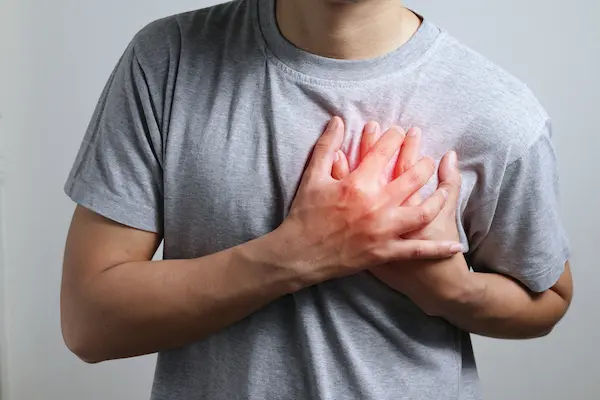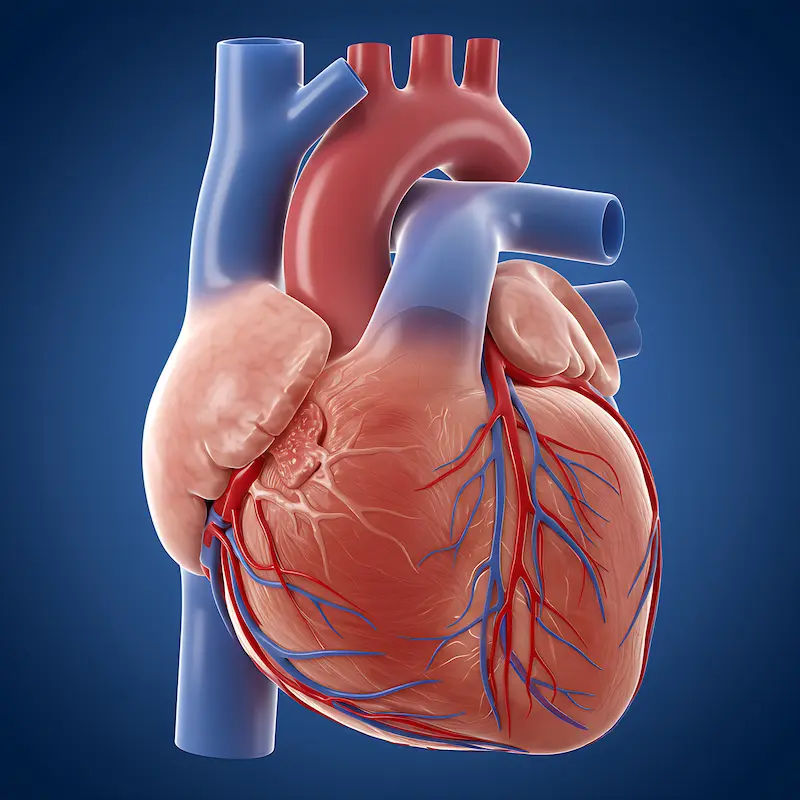- Female
- 63 Years
- 29/01/2025
I've been drinking a lot of water, like between 42 to 64 ounces a day, and I've noticed I sometimes get short of breath and feel some pressure on my chest. But when I don't drink as much water the next day, those symptoms kind of disappear. Could the amount of water I'm drinking be affecting my breathing and chest pressure?
Answered by 1 Apollo Doctors
There must some underlying condition,don't neglect, visit Physician for evaluation and appropriate management
Dr. Anshul Suggests...
Consult a Cardiologist
Answered 04/07/2025
0
0

More Cardiology Health Queries
View allI've noticed that my resting pulse rate usually hovers around 90, although it can dip slightly below that sometimes. Is this normal for me? Also, I've observed that my pulse rate spikes to around 120 after I eat and take a light walk, like after lunch. Is this something I should be concerned about? Just a month ago, I went for a health check-up, and both the ECG and 2D echo turned out normal. I'd love to get your thoughts on this.
A resting pulse rate of around 90 beats per minute can be considered within the normal range, although it is on the higher side. It is normal for the pulse rate to increase after eating or during physical activity. A pulse rate of around 120 beats per minute while walking after lunch is also within normal limits, especially if you were engaging in mild physical activity. Since your ECG and 2D echo results were normal one month back, it is reassuring that there are no underlying heart conditions causing these pulse rate variations. However, if you continue to have concerns about your pulse rate, it would be advisable to monitor it regularly and consult with your healthcare provider for further evaluation and advice on managing your pulse rate.
Answered by 1 Apollo Doctors
I'm really worried about my husband's recent health tests. He had an ECG and a 2D echo at Manipal hospitals as part of a health package. When we looked at the reports at home, we noticed that the Doppler study mentions a mitral flow ea and a tr jet at 2.7ms with a 30mm gradient. The doctors there didn't mention anything unusual, but this feels concerning. He's had high blood pressure for years but it's now under control with lifestyle changes and he's stopped taking medication recently. His cholesterol is also high, with a total of 222, HDL at 39, and LDL at 159. I'm not sure what steps to take next. Should we consider an angiogram?
No need to worry they are optimum and no need to rush for any other investigations maintain healthy lifestyle and follow your doctors advice and regular follow ups with your doctor
Answered by 1 Apollo Doctors
I'm looking at my blood pressure reading and it's 80 over 100. Is that considered normal, high, or low? I really need to know what this means for my health. Can you help me figure it out?
It is hypotension,low BP..U can have 2 glasss of orange juices, plenty of fluids .. if still bp on the lower side 2-3 glasses of fluida mixed with ors is advised, recheck BP.
Answered by 1 Apollo Doctors
Disclaimer: Answers on Apollo 247 are not intended to replace your doctor advice. Always seek help of a professional doctor in case of an medical emergency or ailment.

.webp)



_4.webp)